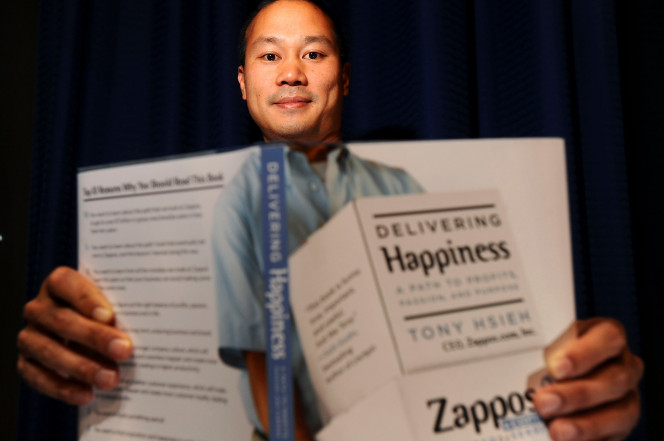
“Happy people make the world a better place,” “Happy” documentary director, Roko Belic, told an audience in Great Hall located in the Hunter Conference Center, at Southern Utah University in Cedar City, Utah, Thursday. He found a common denominator among them. “They have good relationships.”

Belic traveled the world for 6-years in search of stories of what makes people happy. He found it in a U.S. woman who had been run over by a truck, from a humble rickshaw driver in India, in a volunteer who gave up wealth to serve those dying in a Mother Theresa home, also in India, and in elderly Okinawan women loving young children as though they were their own. These and other stories make-up the 2011 documentary, “Happy” which has won countless best documentary awards from film festivals around the world (Happy Movie, 2011).
Keys to Being Happy
“To be happy, you need to love,” was the overarching theme Belic found among those he interviewed.
He also shared what makes him happy. Travel was one thing. Belic encouraged every one present to travel and talked about the incredible learning that takes place when you do. He even told one student, who said she was going to live in Bali for a month and was a little scared, that he would connect her with his “Happy” co-producer who now lives there.
Belic also believes that “[being] a good friend” was another thing people can do to make themselves happy.” Adding, “An act of kindness to someone will improve your happiness,” even if you wrote a letter to them, but never sent it.
He also spoke about how materialism and money do not make a person happy. He alluded to some of his friends who have a lot of money, but are not happy. Belic said he is very grateful for what he has, but that some of his best experiences were when he had little and not knowing where things were going to come from. Similarly, Zappos CEO, Tony Hsieh, in his book, Delivering Happiness, shares the same sentiment, “Money alone isn’t enough to bring happiness . . . happiness [is] when you’re actually truly ok with losing everything you have.”

Yet, Belic believes if you treat people right, you will be alright.
Dr. Barbara Fredrickson, a positive psychology professor at the University of North Carolina, and one who was on the forefront of the positive psychology movement, of which Belic referred to, prefers the term “positivity” over happiness which she defines as:
[a] whole range of positive emotions–from appreciation to love, from amusement to joy, from hope to gratitude, and then some. The term is purposefully broad. It includes the positive meanings and optimistic attitudes that trigger positive emotions as well as the open minds, tender hearts, relaxed limbs, and soft faces they usher in. It even includes long-term impact that positive emotions have on your character, relationships, communities, and environment. (p. 6)
Belic also spoke about “the power of the individual voice” and how “a little gesture can change [someone’s] experience” even as Mother Teresa taught, “your job is to show these dying people that they are loved.”
But before Belic spoke this day, I witnessed a humble servant in him when he immediately stood-up and gave his seat to an incoming school child who arrived late to hear him speak. Likewise, after his presentation, he spoke to many outside of Great Hall. I was one of those. As I waited, I noticed that he was a genuine listener, even remembering names. That he sincerely wanted to know who he was speaking to. He asked questions, and made his email accessible just like Hsieh does during his presentations.

Point blank, Belic is happy. It was quite evident. Even up until the end of his presentation, I noticed those present were fixated and engaged on this unusually confident individual who had shared with us countless lessons on love and its correlation to happiness.
And now we were happy.
After all, said Belic, “happiness is contagious.”
References
Dawson, M. (2017, February 20). Book says Zappos CEO didn’t just want a company — he wanted a cult. Retrieved from http://nypost.com/2017/02/20/zappos-ceo-didnt-just-want-a-company-he-wanted-a-cult/
Delivering Happiness. (2009, March 17). Retrieved from https://www.slideshare.net/zappos/zappos-sxsw-31409
Fredrickson, B. L. (2009). Positivity. New York, NY: Three Rivers Press.
Happy. (2011). Retrieved from http://www.thehappymovie.com/
Happy Press Kit. (2011). Retrieved from http://www.thehappymovie.com/press/
Positivity. (2009). Retrieved from https://www.positivityratio.com/
The Filmmakers. (2011). Retrieved from http://www.thehappymovie.com/film/
Creator’s last name, first initial. (Role of creator). (Year of creation). Title of image or description of image. [Type of work]. Retrieved from URL/database


